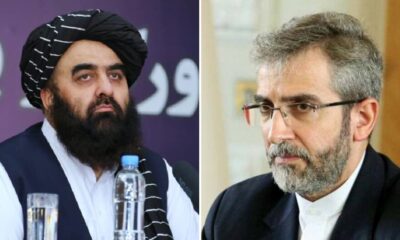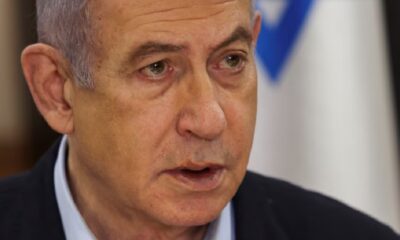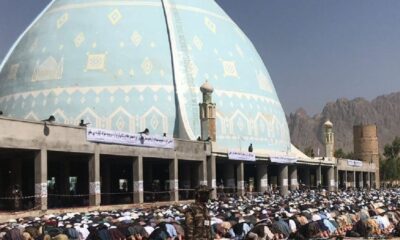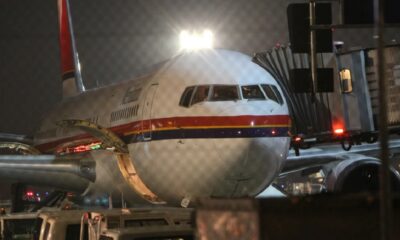World
More than 2,000 could be buried in Papua New Guinea landslide, authorities say
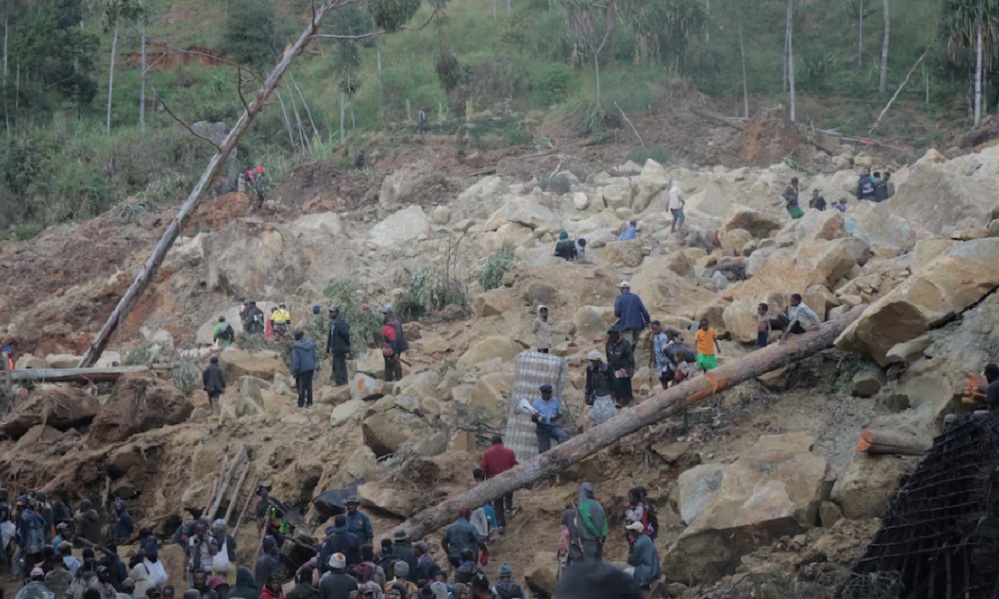
More than 2,000 people could be buried alive by a massive landslide in Papua New Guinea last week, the government said on Monday, as treacherous terrain and the difficulty of getting aid to the site raises the risk that few survivors will be found.
The National Disaster Centre raised the number suspected buried to 2,000 in a letter to the U.N. released on Monday but dated Sunday.
A separate U.N. agency put the possible death toll much lower, at more than 670 people.
The variance reflects the remote site and the difficulty getting an accurate population estimate. PNG’s last credible census was in 2000 and many people live in isolated mountainous villages.
The landslide crashed through Yambali village in the country’s north at around 3 a.m. on Friday while most of the community slept.
More than 150 houses were buried beneath debris almost two stories high. Rescuers told local media they heard screams from beneath the earth.
“I have 18 of my family members being buried under the debris and soil that I am standing on, and a lot more family members in the village I cannot count,” resident Evit Kambu told Reuters. “But I cannot retrieve the bodies so I am standing here helplessly.”
Heavy equipment and aid has been slow to arrive due to the remote location while tribal warfare nearby has forced aid workers to travel in convoys escorted by soldiers and return to the provincial capital, roughly 60 km away, at night.
The first excavator only reached the site late on Sunday, according to a U.N. official. Six bodies have been retrieved so far.
Contact with other parts of the country is difficult due to patchy reception and limited electricity at the site, Reuters reported.
Even when rescue teams can get to the site, rain, unstable ground and flowing water is making it extremely dangerous for residents and rescue teams to clear debris, according to Serhan Aktoprak, the chief of the U.N. migration agency’s mission in PNG.
World
Netanyahu disbands his inner war cabinet
The prime minister had faced demands from the nationalist-religious partners in his coalition, Finance Minister Bezalel Smotrich and National Security Minister Itamar Ben-Gvir, to be included in the war cabinet, a move which would have intensified strains with international partners including the United States.
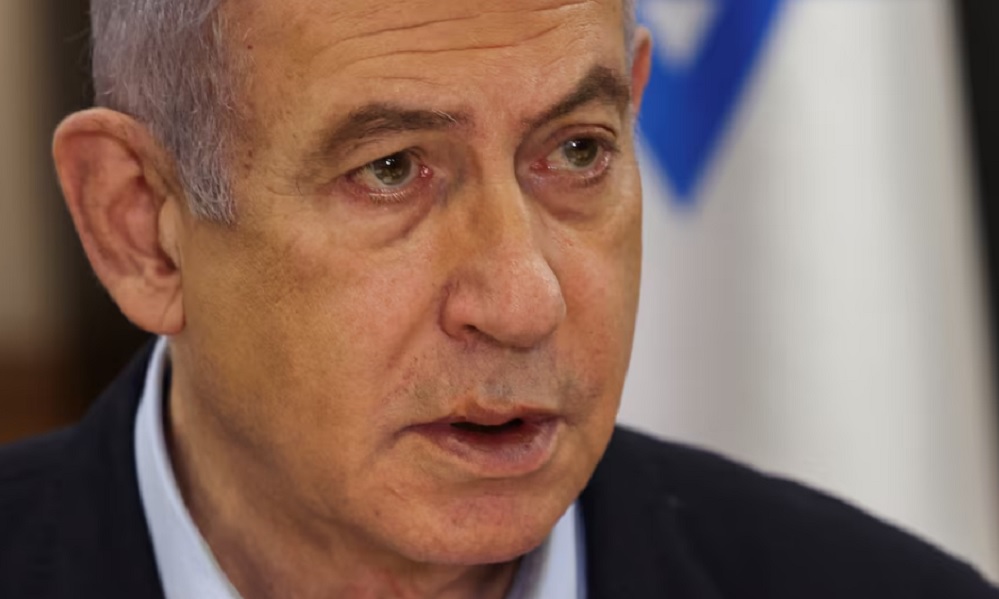
Israeli Prime Minister Benjamin Netanyahu has dissolved the six-member war cabinet, an Israeli official said on Monday, in a widely expected move that came after the departure from government of the centrist former general Benny Gantz.
Netanyahu is now expected to hold consultations about the Gaza war with a small group of ministers, including Defence Minister Yoav Gallant and Strategic Affairs Minister Ron Dermer who had been in the war cabinet, Reuters reported.
The prime minister had faced demands from the nationalist-religious partners in his coalition, Finance Minister Bezalel Smotrich and National Security Minister Itamar Ben-Gvir, to be included in the war cabinet, a move which would have intensified strains with international partners including the United States.
The forum was formed after Gantz joined Netanyahu in a national unity government at the start of the war in October and also included Gantz’s partner Gadi Eisenkot and Aryeh Deri, head of the religious party Shas, as observers.
Gantz and Eisenkot both left the government last week, over what they said was Netanyahu’s failure to form a strategy for the Gaza war.
Related stories:
Eight Israeli soldiers killed as fighting continues in Rafah
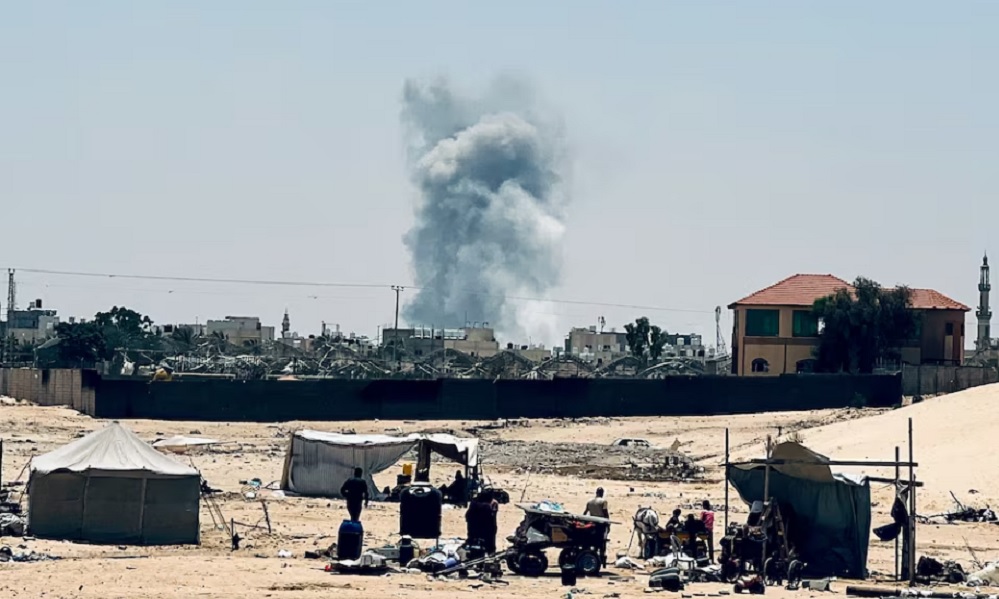
UN Security Council backs Israel-Hamas ceasefire plan
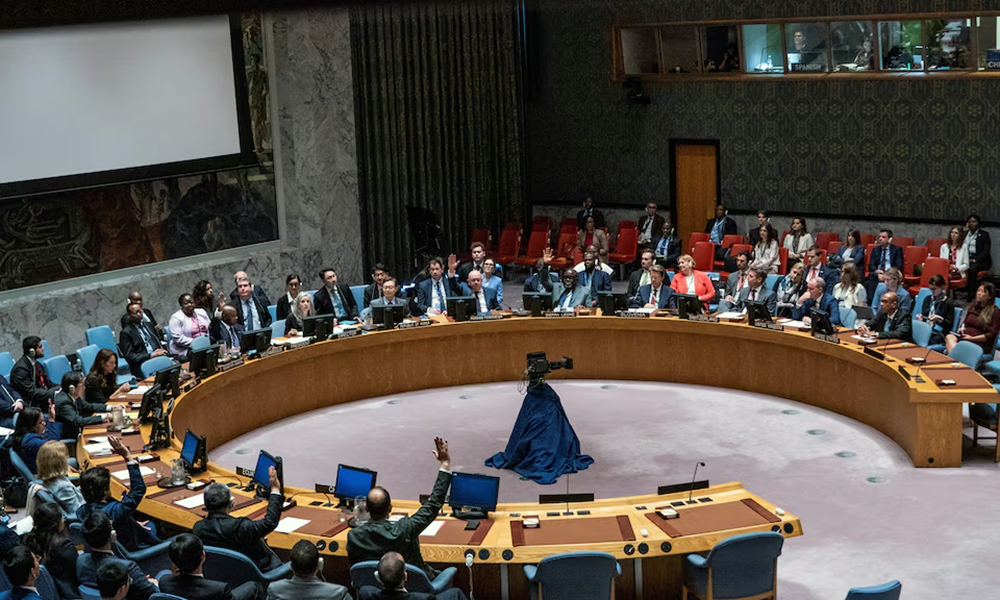
World
Eight Israeli soldiers killed as fighting continues in Rafah
The armed wing of Hamas said the vehicle had been trapped in a prepared minefield that set off the explosion.

Eight Israeli soldiers were killed in the southern Gaza Strip on Saturday, the military said, as forces continued to push in and around the southern city of Rafah and strikes hit several areas of Gaza, killing at least 19 Palestinians.
The soldiers, all members of a combat engineering unit, were in an armoured carrier that was hit by an explosion that detonated engineering materials being carried on the vehicle, apparently in contravention of standard practice, the military said. It said the early morning incident, in the Tel al-Sultan area in the west of Rafah, was being investigated, Reuters reported.
The armed wing of Hamas said the vehicle had been trapped in a prepared minefield that set off the explosion.
Israeli tanks advanced in Tel al-Sultan and shells landed in the coastal area, where thousands of Palestinians, many of them displaced several times already, have sought refuge.
Despite growing international pressure for a ceasefire, an agreement to halt the fighting still appears distant, more than eight months since the start of the war in October, with the near-daily cross-border exchanges of fire with Hezbollah militia fighters in southern Lebanon intensifying.
In Israeli airstrikes on two houses in Gaza City suburbs, residents said at least 15 people were killed. Four others were killed in separate attacks in the south, medics said.
The Israeli military on Saturday said its forces in Rafah, the southernmost city in Gaza, close to the border with Egypt, had captured large quantities of weapons, both above ground and concealed in the extensive tunnel network built by Hamas.
It said militants had on Friday fired five rockets from the humanitarian area in central Gaza, two of which fell in open areas in Israel and three fell short in Gaza.
“This is a further example of the cynical exploitation of humanitarian infrastructure and the civilian population as human shields by terror organizations in the Gaza Strip for their terrorist attacks,” the military said.
PROTESTS
The deaths of the soldiers may complicate the political situation facing Prime Minister Benjamin Netanyahu, a week after centrist former general Benny Gantz quit the government, accusing Netanyahu of having no proper strategy for Gaza.
Tens of thousands of Israelis gathered in Tel Aviv on Saturday in the latest of the now weekly protests by families and supporters of hostages still held by Hamas, demanding an agreement to bring them home.
In a video statement issued late on Saturday, Netanyahu said there was no alternative but to stick to the goals of the war to defeat Hamas and bring the hostages back.
Although surveys show solid support among the Israeli public for continuing the war against Hamas, the protests underscore the divisions in Israeli society that have reopened following a period of unity at the start of the war.
The Islamic Jihad armed wing, Al-Quds Brigades, said on Saturday Israel could only regain its hostages in Gaza if it ended the war and pulled out forces from the enclave.
Islamic Jihad is a smaller ally of Hamas, which led a rampage in southern Israel on Oct. 7 in which 1,200 people were killed and more than 250 taken hostage, according to Israeli tallies. More than 100 hostages are believed to remain captive in Gaza, although at least 40 have been declared dead in absentia by Israeli authorities.
Since a week-long truce in November, repeated attempts to arrange a ceasefire have failed, with Hamas insisting on a permanent end to the war and full Israeli withdrawal from Gaza. Netanyahu refuses to end the war before Hamas is eradicated.
At least 37,296 Palestinians, at least 30 of them in the past 24 hours, have been killed in Israel’s military campaign to eliminate Hamas, according to the Gaza health ministry.
Related stories:
UN Security Council backs Israel-Hamas ceasefire plan

Israel says jets strike school containing Hamas compound, Gaza media says 27 killed
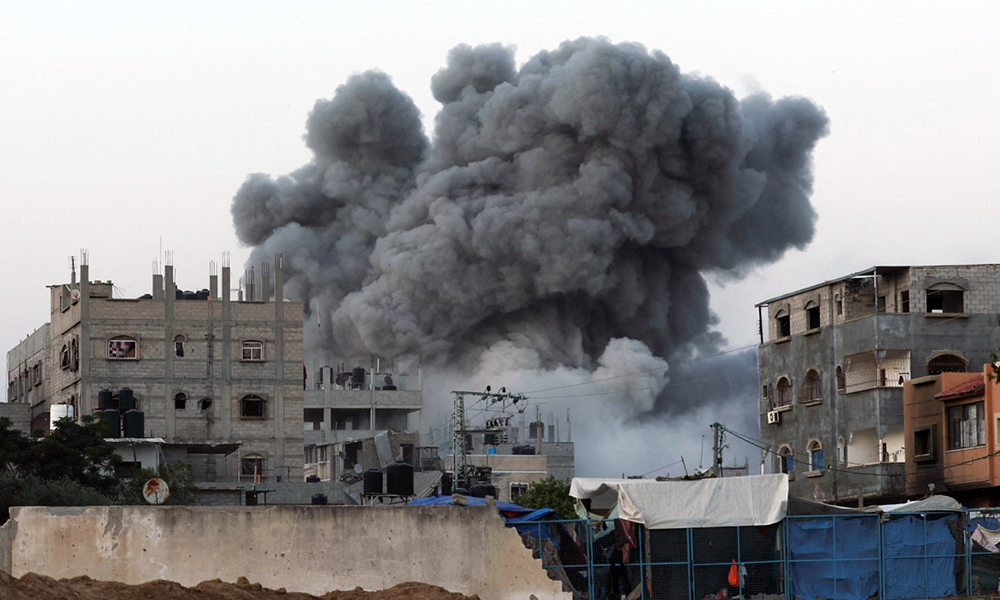
World
Muslim pilgrims pray on Mount Arafat in hajj climax
This year’s hajj is unfolding in the shadow of the war in Gaza between Israel and Hamas, which was triggered by Hamas’s unprecedented attack on southern Israel on October 7.
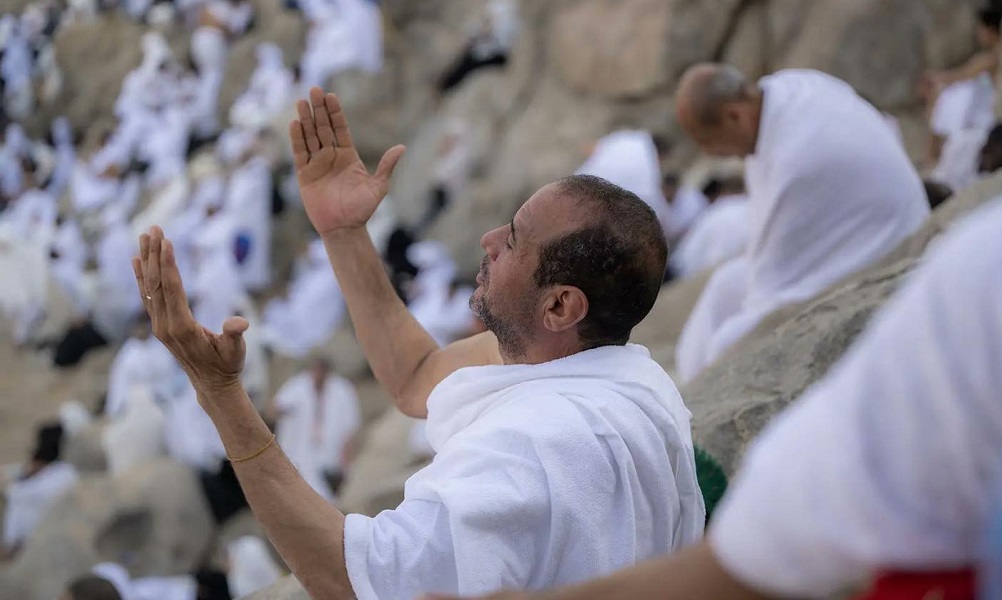
More than 1.5 million Muslims braved extreme heat to reach Mount Arafat on Saturday for the high point of the annual hajj pilgrimage, praying for hours, especially for Palestinians in war-ravaged Gaza.
Clad in white, worshippers began arriving at dawn for the most gruelling day of the annual rites, ascending the rocky, 70-metre (230-foot) hill where the Prophet Mohammed is believed to have given his last sermon, AFP reported.
“This is the most important day,” said 46-year-old Egyptian Mohammed Asser, who came prepared with a list of prayers. “I pray also for the Palestinians. May God help them.”
This year’s hajj is unfolding in the shadow of the war in Gaza between Israel and Hamas, which was triggered by Hamas’s unprecedented attack on southern Israel on October 7.
The assault resulted in the deaths of 1,194 people, mostly civilians, according to an AFP tally based on Israeli official figures.
Israel’s retaliatory military offensive has killed at least 37,266 people in Gaza, also mostly civilians, according to the Hamas-ruled territory’s health ministry.
Saudi Arabia’s minister in charge of religious pilgrimages, Tawfiq al-Rabiah, warned last week that “no political activity” would be tolerated during the hajj.
But that did not stop at least one pilgrim from chanting in support of the Palestinians who have endured more than eight months of incessant bombardment.
“Pray for our brothers in Palestine, in Gaza… may God give victory to the Muslims,” he shouted.
In a message to hajj pilgrims on Saturday, Iranian supreme leader Ayatollah Ali Khamenei said “the ironclad resistance of Palestine and the patient, oppressed people of Gaza… must be fully supported in every way”.
Some 2,000 Palestinians are performing the hajj at the special invitation of Saudi King Salman, official media said.
-
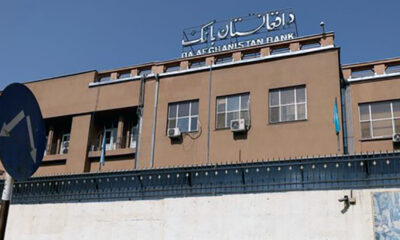
 Latest News4 days ago
Latest News4 days agoAfghanistan’s central bank chief upbeat over stable AFN
-

 Latest News4 days ago
Latest News4 days agoUNICEF marks ‘sad’ 1,000-day milestone of ban on Afghan girls’ education
-
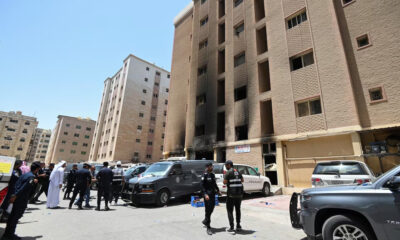
 Regional4 days ago
Regional4 days agoFire in Kuwait building kills 49 foreign workers
-

 Sport3 days ago
Sport3 days agoAfghanistan down PNG to reach Super Eight, end NZ hopes
-

 Latest News4 days ago
Latest News4 days agoDoD says it continues to ‘go after’ Daesh in the region
-
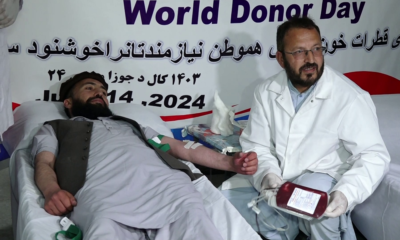
 Health4 days ago
Health4 days agoWorld Blood Donor Day: Over 670,000 units of blood donated in past year
-

 Latest News5 days ago
Latest News5 days agoAWCC opens new customer services center in Parun, Nuristan
-

 Latest News3 days ago
Latest News3 days agoCongo fever increases in Afghanistan: WHO


